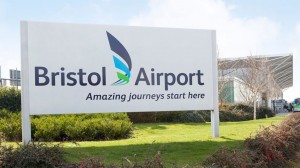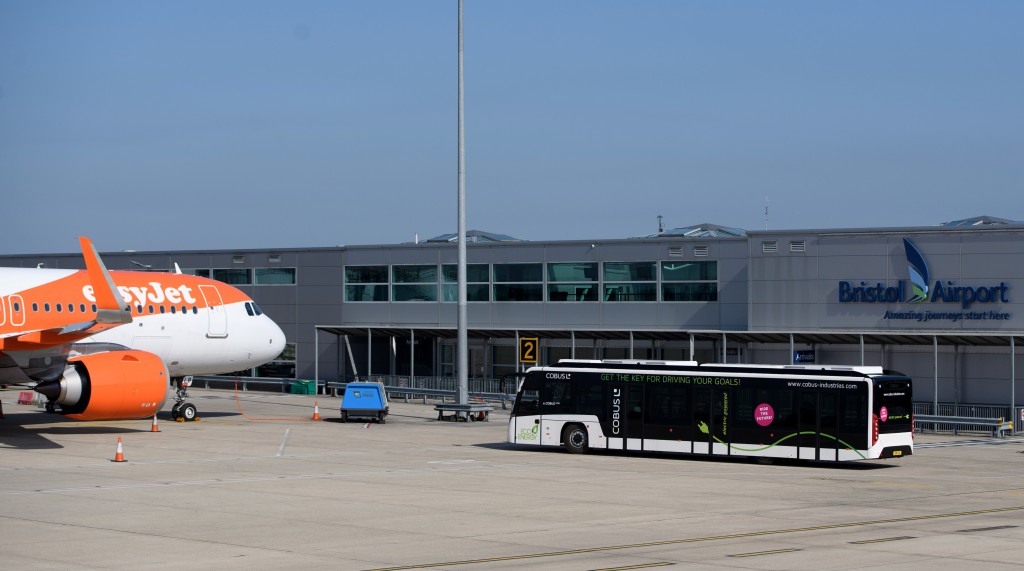Low-cost airline easyJet has teamed up with Bristol Airport to use it as a test-bed to trial ways of decarbonising its operations and reduce waste.
The airline, the airport’s largest operator accounting for about half of all its flights, said the partnership would involve a series of trials using the latest cutting-edge technology and other innovations that could lead to operational efficiencies. 
The aim is to achieve a net-zero emissions at the airport alongside taking steps towards reducing easyJet’s overall carbon footprint.
EasyJet has a 17-strong fleet of aircraft based at Bristol which serves its 70-plus destinations.
The airline and airport hope any successful results from the trials will have the potential to be rolled out across easyJet’s entire network, which spans 150 airports across 35 countries.
In June Bristol Airport said it would become carbon neutral later this year by hitting targets it originally expected to reach in 2025 – setting it up to gain the title of the UK’s first net zero airport by 2030.
However, that claim has been slammed by some environmental groups as well as Green Party councillors on Bristol City Council, who described it as “utter nonsense and a cynical form of greenwashing.”
The partnership between the airport and easyJet will work with expert associates and firms in the aviation industry to help reduce and eliminate emissions from aircraft ground operations.
It will also challenge the industry to work together to develop affordable and achievable technological solutions. 
Projects likely to be considered will look at:
- Electric Ground Power Units
- Sustainable aviation fuels
- Electric passenger coach transportation
- Recycling and waste management
- Employee carbon-saving initiatives
- Supply chain carbon reductions
- Aircraft continuous descent approaches
- Zero carbon emission aircraft turnarounds
- NEO (new engine option) aircraft deployment and fleet optimisation.
EasyJet operates a number of 186-seat A320neo aircraft, , from Bristol.
While the A320neo’s new energy-efficient engines and innovative wingtips – designed by engineers at Airbus’s Filton plant – cut fuel use by 15%, they also reduce noise and take-off and landing by around 50%.
director of sustainability Jane Ashton said: “easyJet takes sustainability seriously, already offsetting the carbon emissions from the fuel used on all our flights as an interim measure while we continue to champion the development of new technology.
“We will continue to optimise our operational fuel and carbon-efficiency and review what further measures we can take to reduce emissions across our operations.
“This partnership with Bristol Airport is a good example of how we can look at every aspect of our operations, really challenging how we do things by implementing the newest technological solutions across a series of decarbonisation and waste reduction trials over the coming months.
Bristol Airport sustainability and corporate affairs director Simon Earles added: “We are delighted to be partnering with easyJet to see how we can continue to work together towards our ambition to achieve net-zero emissions at the airport.
“As an airport we are taking our commitments to address climate change seriously and we have made great progress already. By the end of 2021 we will be a carbon neutral airport for emissions under our direct control, exceeding our own target, four years ahead of schedule.
“Working in partnership with easyJet will enable us to develop joint initiatives and projects to contribute towards decarbonising aviation and the creation of green jobs.”
The partnership with easyJet has been launched at the same time as Bristol Airport has opened a new fund to support innovative research and projects to decarbonise aviation.
The £250,000 Aviation Carbon Transition (ACT) Programme is open to any South West organisation or business with relevant innovative projects that focus on ‘Scope 3’ emissions – those that are outside the airport’s own operations, such as planes and passenger road transport.
The programme will make individual grants of up to £50,000 to organisations developing technology that could help the aviation industry transition to zero carbon emission flight.
Bristol Airport is currently appealing against North Somerset Council’s rejection of its expansion plans, which would increase its annual capacity from 10m to 12m passengers.
The airport, which was handling well over 9m passengers a year before the pandemic, claims it can grow without causing additional damage to the environment.














